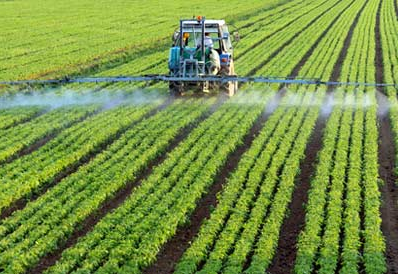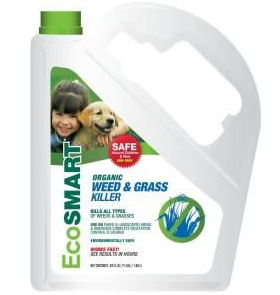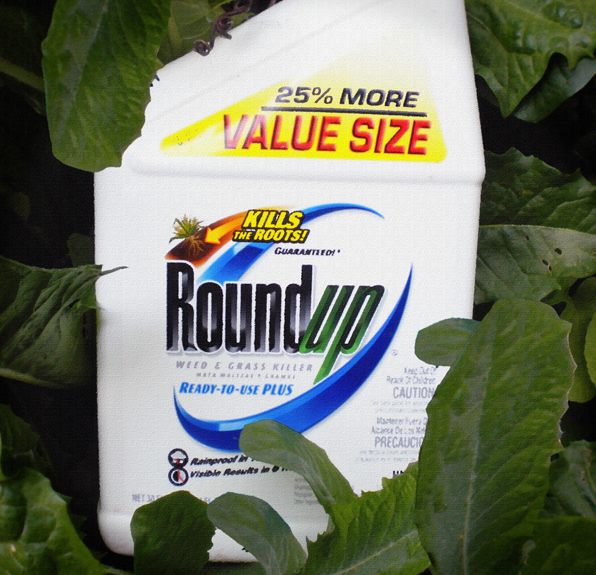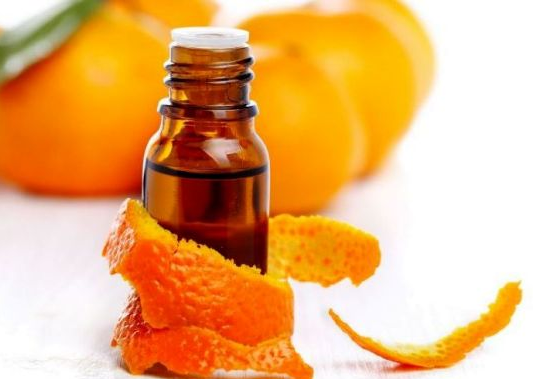Look, even if you have never purchased Roundup for personal lawn care use...
It's main ingredient, glyphosate, has been used on crops in American farmlands since 1974.
Worse still, it's long been sprayed on the things you purchase, eat, and wear.
In fact, glyphosate is the most widely used weed killer in the world!
But is it safe to use?
Well, here is what you need to know.
Roundup is Widely Used, Globally
According to the World Health Organization, over 1.4 billion pounds of this herbicide are being sprayed on America's agricultural land every year.
In fact, almost all corn, soy, wheat, and cotton grown in the United States have been sprayed with it.
Monsanto, the company that invented the herbicide, has even gone as far as to genetically modify crops so they can tolerate higher doses of Roundup, hence its Roundup brand. Worse still, they defend the use of their product with their own research, case studies, and scientific findings.
Not only has the International Agency for Research on Cancer (IARC) classified glyphosate as a probable carcinogenic to humans, but it also has many other health concerns associated with its exposure.
So even if one answers “Yes” to the question “Is Roundup too dangerous to use?,” it’s too late. Consumers have already been exposed to it. And this has now resulted in billions of dollars in settlements for Monsanto's Roundup product.
Below are a few other possible health concerns associated with exposure to Roundup/glyphosate.
 Possible Health Concerns with Roundup/Glyphosate
Possible Health Concerns with Roundup/Glyphosate
There are many diseases which have been linked to Roundup exposure in the past.
They range from minor skin irritation to much more serious issues such as those listed below.

Birth defects:
According to a study in Paraguay, women living within one kilometer of fields sprayed with glyphosate were twice as likely to bear children with birth defects. Deformities also quadrupled during the past decade in Chaco, Argentina, where the herbicide is used eight to ten times more per acre than in the US. This happens due to Roundup/glyphosate disrupting Vitamin A signaling the pathway which is vital for normal fetal development.
Inflammatory Bowel Disease:
Research shows that Roundup/glyphosate is impacting gut microbiota destroying beneficial bacteria and strengthening detrimental bacteria. It causes major tryptophan deficiency leading to excessive bleeding and diarrhea.
Depression:
Here's the deal, the good bacteria in human guts are responsible for synthesizing and creating all the serotonin in human brains and strengthening the immune system. If those bacteria are not producing serotonin, humans are in trouble. Low levels of serotonin can lead to depression and even schizophrenia.
Parkinson’s disease:
The brain-damaging effects of herbicides like Roundup/glyphosate have been recognized as the main environmental factor correlated with brain disorders, including Parkinson’s disease. Many studies have proven that Roundup/glyphosate influences the cell death characteristic of the disease.
Lou Gehrig’s disease (ALS):
The lack of sulfate in the brain has been associated with ALS. Roundup/Glyphosate disrupts the transport of sulfate from the gut to the liver and over time may lead to severe sulfate deficiency throughout all tissues, including the brain.
Heart disease:
When sprayed on the soil, Roundup/glyphosate increases the amount of toxins made by fungal organisms. These mycotoxins, or molds, can raise cholesterol levels when foods treated with glyphosate are consumed. Roundup also disrupts vitamin D activation in the liver and kidneys causing blood to coagulate and red blood cells to fall apart.
Health Concerns Associated with Roundup/Glyphosate Exposure- A Quick Overview
| Condition | Impact |
|---|---|
| Birth Defects | Higher risk near sprayed fields; disruptions in fetal development |
| Inflammatory Bowel Disease | Impacts gut microbiota, causing tryptophan deficiency and digestive issues |
| Depression | Linked to reduced serotonin production by gut bacteria |
| Parkinson’s Disease | Recognized as a major environmental factor due to brain-damaging effects |
| ALS (Lou Gehrig’s Disease) | Associated with sulfate transport disruption leading to brain sulfate deficiency |
| Heart Disease | Increased mycotoxins in food raise cholesterol levels; disrupts vitamin D activation |
Are There Natural Alternatives to Roundup/glyphosate
Fortunately, there are plenty of Eco-friendly products and natural alternatives to Roundup.
Here are just a few!
1. Orange Oil
Brett Helms, of Lawn Kings in Georgia, uses orange oil.
This is a natural acid that kills weeds and is biodegradable.
Mix half a cup of orange oil with 1 quart of water and spray directly on weeds. For best results, spray on a sunny day to maximize the weed-killing potential.
2. Horticultural Vinegar
Jack Lopresto with Prestoscapes in Tampa, Florida uses horticultural strength vinegar.
Commercial strength vinegar can kill your weeds and is also biodegradable.
Vinegar is far less toxic than commercial formulas, but make sure you only spot treat because this can kill grass as well! Just don’t try it on your french fries.
3. EcoSmart Products
Bryan Isaac with Isaacs Lawn Care in Mt. Juliet, Tennessee uses all EcoSmart Products.
These products rely on food-grade plant oils, like cloves oil, to kill weeds. None of the ingredients are considered toxic to humans.
Ecosmart's line of products is commonly found at Lowes and Walmart.
| Alternative | Description | Availability |
|---|---|---|
| Orange Oil | Biodegradable weed killer; mix with water and spray | DIY solution |
| Horticultural Vinegar | Strong vinegar for spot treatment of weeds; biodegradable | DIY solution |
| EcoSmart Products | Uses food-grade plant oils; non-toxic to humans | Retailers like Lowes, Walmart |
Roundup Use In Conclusion
So what’s the average consumer to do?
In addition to using alternative products, put the question in perspective. The biggest health risks are posed by roundup/glyphosate use in agricultural settings.
Personal lawn care dosages are normally considered too low to have any negative impact, particularly when warning labels are heeded. But that is not to say they are worth the risk.
The information presented here should help keep consumers engaged in an informed decision.



 Share
Share







